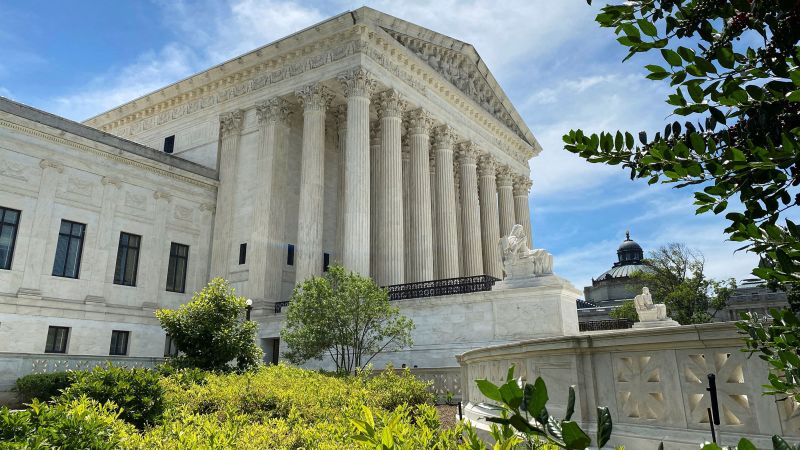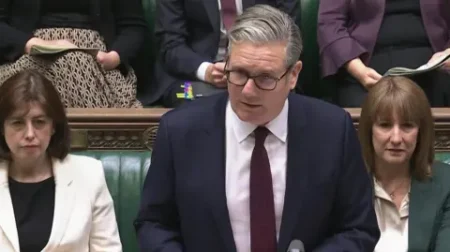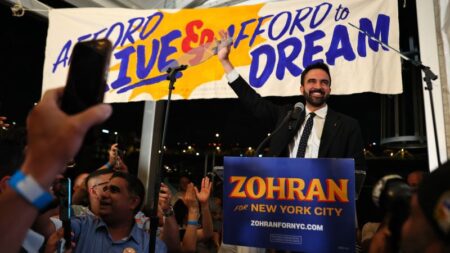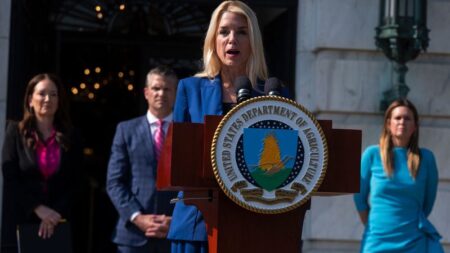The Supreme Court’s decision to hear a case concerning the rights of religious inmates, specifically a Rastafarian man named Damon Landor, marks a pivotal moment in legal battles surrounding religious freedoms in the American prison system. This case arises from a troubling incident in which Landor had his dreadlocks forcibly cut off while serving a five-month sentence in Louisiana for drug possession. His dreadlocks hold significant religious meaning as part of his Rastafarian beliefs, and the actions taken by prison officials have led him to seek legal recourse.
Landor, who had adhered to a religious vow prohibiting him from cutting his hair, attempted to inform prison staff of a 2017 appeals court ruling that supported the rights of inmates to maintain dreadlocks. His efforts were met with disregard, as prison guards dismissed the court ruling and forcefully shaved his head, asserting control over his religious expression. The incident raised serious concerns over the violation of Landor’s religious rights and the appropriate legal avenues for those wronged within the penal system.
After his release, Landor pursued legal action against the Louisiana prison officials, citing a federal law designed to protect the religious rights of inmates. Unfortunately, lower courts rejected his claims. They ruled that the measure did not provide a mechanism for inmates to seek monetary damages from officials, despite acknowledging that he had been a victim of a serious legal wrong. This dismissal highlights a glaring disparity in the enforcement of religious rights within the corrections system.
This case has gained attention as it could potentially reshape the contours of accountability for prison officials. The New Orleans-based 5th US Circuit Court of Appeals chastised the treatment Landor received but ultimately denied him the opportunity to litigate based on an earlier precedent that limited prisoners’ rights to damages under the law. The court’s divided opinion on whether to hear the case illustrates the complexities involved in judicial interpretations of religious freedoms in confinement settings.
One significant aspect of the case revolves around the federal statute signed into law by President Bill Clinton back in 2000, which aims to safeguard the religious interests of state prisoners. However, ambiguity surrounding the law’s applicability has left many inmates like Landor vulnerable and without proper legal remedies. In a prior 2020 ruling, the Supreme Court indicated that similar statutes could indeed allow for damages against government officials who infringe on religious rights, creating a foundation for Landor’s case to potentially succeed.
The arguments presented by Landor’s legal team emphasized the essential need for a damages remedy, asserting that without it, inmates’ religious freedoms may be routinely violated with little recourse for those affected. The notion that Landor’s only means for redress stems from financial compensation following the violation of his beliefs underscores a critical gap in the protections offered to incarcerated individuals.
Further complicating matters, attorneys representing the state officials urged the Supreme Court to refrain from accepting the case. They contended that Landor could seek relief under state law rather than through federal litigation. Additionally, concerns were raised that the approval of this lawsuit could discourage potential employment within the prison system, exacerbating staffing shortages that could negatively impact overall prison conditions.
Interestingly, during this legal debate, the previous Trump administration had expressed support for the case, suggesting that the federal government holds an interest in ensuring religious practices are upheld in institutions receiving federal funding. Solicitor General D. John Sauer articulated that damage liability is closely connected to the government’s responsibility to monitor and safeguard religious exercise within correctional facilities.
In summary, the Supreme Court’s decision to delve into Landor’s case signals a turning point in the discourse on religious liberties in the American justice system. The resolution of this case could set important precedents regarding the extent to which religious rights are protected for incarcerated individuals, as well as the possible liabilities faced by correctional officials who infringe upon those rights. The implications of this case could resonate far beyond Landor’s specific situation, potentially transforming the landscape of prisoners’ rights in the United States.











